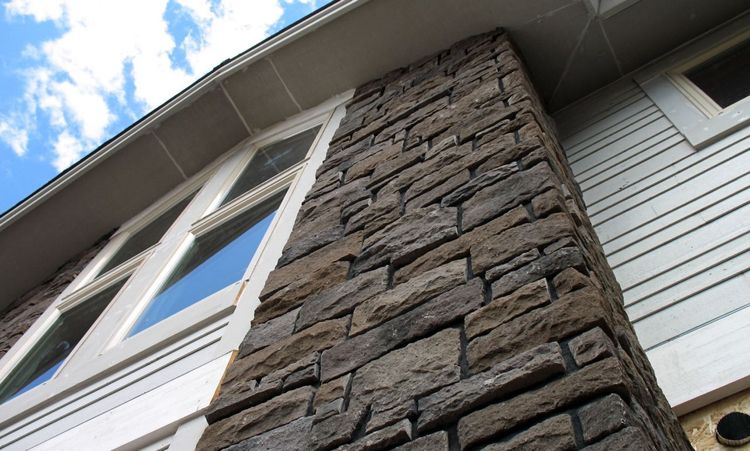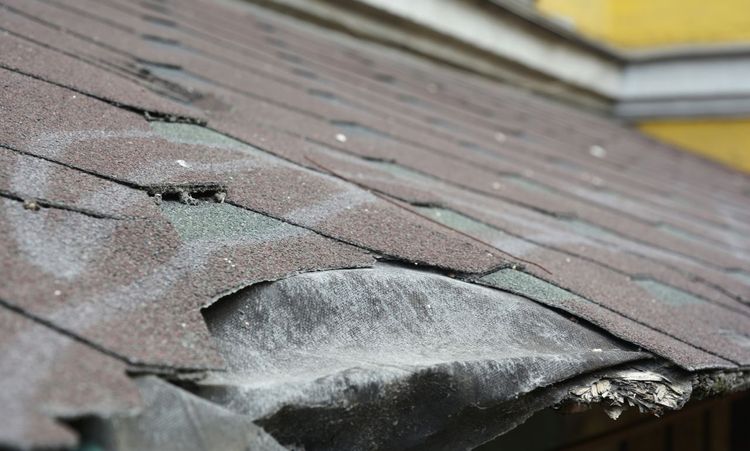Choosing the perfect facade for your home isn't just about looks; it's about making a statement. Exterior faux stone panels and natural stone are two popular options that can dramatically enhance your property's curb appeal.
[cta_blocks base_url="https://exterior-faux-805082950.click?postbackid={a1clkid}&ref_adnetwork=zemanta&ref_pubsite={publisher}&s2s_event_id=zemanta&subid1=network-zm|eID-4|accID-84866|campID-{a1cid}|agID-{a1agid}&subid2=mediaSource-{a1ms}|publisher-{a1pb}&terms=exterior%20faux%20stone%20panels%2Cdecorative%20stone%20wall%20panels%2Coutdoor%20faux%20stone%20siding%2Cfake%20stone%20cladding%20panels%2Cimitation%20stone%20panels%20for%20exteriors&ref_keyword=exterior%20faux%20stone%20panels" ctas="Exterior Faux Stone Panels, Decorative Stone Wall Panels, Outdoor Faux Stone Siding, Fake Stone Cladding Panels, Imitation Stone Panels For Exteriors"]
Overview of Exterior Materials
When it comes to dressing up the exterior of your home, the materials you choose play a critical role. They not only define the aesthetic but also impact durability, maintenance, and overall value.
Importance of Choosing the Right Facade
Your facade is the face of your home. It's the first thing visitors see and can significantly influence the first impression. Selecting the right material ensures that your home reflects your personal style while standing up to the elements.
What Are Faux Stone Panels?

Exterior faux stone panels are man-made products designed to replicate the appearance of natural stone. They offer an affordable and versatile alternative, allowing homeowners to achieve the coveted stone look without the associated costs and labor.
Definition and Characteristics
Faux stone panels are typically crafted from high-density polyurethane or a similar composite material. These panels mimic the texture, color, and variation of real stone, offering a lightweight and easy-to-install solution.
Common Types of Faux Stone Panels
You can find a wide array of faux stone panel styles, including:
- Stacked Stone: Mimics the look of tightly stacked, uneven stones.
- River Rock: Features smooth, rounded stones like those found in riverbeds.
- Fieldstone: Emulates larger, rough-cut stones for a rustic appeal.
- Brick Veneer: Offers the classic look of brickwork in panel form.
Cost Considerations
One of the significant advantages of exterior faux stone panels is their cost-effectiveness. Materials and installation are generally less expensive than natural stone, making them an attractive option for budget-conscious homeowners.
Advantages of Faux Stone Panels
Choosing faux stone panels comes with several perks that make them a compelling choice for modern exteriors.
Budget-Friendly Option
Who says you can't have champagne taste on a beer budget? Faux stone panels are your ticket to luxurious looks without emptying your wallet. Imagine the envy-inducing curb appeal you'll create while still having cash to splash on other home improvements. It's like hitting the jackpot of home renovations!
Lightweight and Easy to Handle
Say goodbye to backbreaking labor and hello to effortless style! These featherlight panels are a breeze to transport and handle. You'll be amazed at how quickly installation flies by, and your wallet will thank you for the reduced labor costs. It's a win-win situation that'll leave you wondering why you didn't discover this sooner!
Versatile Design Choices
Get ready to unleash your inner designer! With a mind-boggling array of styles, colors, and textures at your fingertips, the sky's the limit for your exterior makeover. Craving a sleek, modern vibe? Done. Yearning for rustic charm? You've got it. These panels are the chameleons of the design world, ready to bring your vision to life!
Quick and Simple Installation Process
DIY enthusiasts, rejoice! These panels are practically begging to be installed. With user-friendly interlocking systems and direct adhesion options, you'll have your new exterior up faster than you can say "home improvement." It's so easy, you might find yourself looking for more projects to tackle!
Low Maintenance Requirements
Imagine a world where your beautiful exterior takes care of itself. Welcome to the low-maintenance paradise of faux stone panels! These tough cookies laugh in the face of pests and moisture, and they don't need constant pampering. You'll save time, money, and effort in the long run, leaving you free to enjoy your stunning home without the hassle.
Disadvantages of Faux Stone Panels

Despite their benefits, faux stone panels have some drawbacks to consider.
Less Authentic Look Compared to Natural Stone
Sure, from a distance, they're stone-cold stunners. But get up close and personal, and you might spot the facade faltering. Despite manufacturers' best efforts, faux panels can struggle to capture the deep, rich textures and subtle color variations that make natural stone a showstopper. It's like comparing a masterpiece to a pretty good copy – nice, but not quite the real deal.
Potential for Fading Over Time
Mother Nature can be a tough critic, and she's not letting faux stone off easy. Prolonged sun exposure and weather beatings can cause these panels to lose their luster over time. That vibrant, fresh-faced exterior might start looking a bit washed out after a few years in the spotlight. It's the exterior equivalent of leaving your favorite shirt out in the sun – not a pretty sight!
Limited Lifespan Compared to Natural Materials
While natural stone stands the test of time, faux panels might be singing a different tune. They're more susceptible to throwing in the towel when faced with extreme temperatures or unexpected impacts. It's like comparing a centenarian to a middle-aged weekend warrior – both have their merits, but one's clearly built for the long haul.
What Is Natural Stone Veneer?
Natural stone veneer is made from real stone quarried from the earth. It offers an authentic and timeless look that adds a touch of elegance to any home.
Common Types of Natural Stone Veneer

Natural stone veneers come in various types, each bringing its unique characteristics:
- Limestone: Known for its subtle textures and earthy tones.
- Slate: Offers rich colors and a smooth finish.
- Granite: Durable with a variety of colors and patterns.
- Sandstone: Features warm hues and a rough texture.
Advantages of Natural Stone Veneer
Opting for natural stone veneer brings several benefits that can enhance your home's value and aesthetic.
Authentic and Timeless Aesthetic
Natural stone veneer brings an unparalleled authenticity to any structure. Unlike manufactured alternatives, each piece of natural stone boasts unique patterns, textures, and color variations, ensuring that no two installations are exactly alike. This distinctive quality creates a rich, organic look that adds depth and character to both exterior and interior spaces.
The timeless appeal of natural stone transcends passing trends, maintaining its allure for decades. Whether applied to a rustic cottage or a modern mansion, stone veneer adapts seamlessly to various architectural styles, providing a sophisticated and enduring charm that never goes out of fashion.
Durability and Longevity
Natural stone is incredibly durable. Formed over millions of years, these stones have inherent strength that allows them to withstand extreme weather conditions, from harsh sunlight to freezing temperatures. Resistant to fading, chipping, and cracking, natural stone veneer requires minimal maintenance to preserve its beauty.
This resilience translates to impressive longevity. When properly installed and cared for, natural stone veneer can last for generations, making it a wise long-term investment for homeowners.
Value Addition to Property
Incorporating natural stone veneer into your home can significantly boost its market value. The luxurious appearance and quality of natural stone create a strong first impression, appealing to potential buyers and setting your property apart in a competitive real estate market.
While the initial cost may be higher than some alternatives, the long-term benefits of natural stone veneer – including its durability, low maintenance requirements, and timeless appeal – often result in a solid return on investment. Homes featuring natural stone elements frequently command higher resale prices, making it an attractive option for homeowners looking to enhance their property's value.
Disadvantages of Natural Stone Veneer
However, natural stone veneer isn't without its challenges.
Higher Cost and Labor-Intensive Installation
Natural stone is more expensive than exterior faux stone panels, both in material costs and the skilled labor required for installation.
Heavier Weight Leading to Structural Considerations
The weight of natural stone veneer can necessitate structural modifications to support it, potentially increasing project complexity and cost.
Maintenance Requirements
While durable, natural stone may require sealing and regular maintenance to prevent staining and degradation over time.
Comparing Aesthetics: Faux vs. Natural Stone
When it comes to aesthetics, both options offer distinct advantages.
Visual Appeal and Texture
- Natural Stone: Provides unique textures and patterns that are impossible to replicate artificially. Each piece is different, giving your home a truly unique look.
- Faux Stone Panels: Offer consistency and uniformity, which can be desirable for certain modern designs.
Color Variations

- Natural Stone: Boasts natural color variations that add depth and character.
- Faux Stone Panels: Available in a wide range of colors, including custom hues not found in nature, allowing for personalized design schemes.
Ready to elevate your home's exterior? Whether you prefer the affordability and ease of exterior faux stone panels or the timeless elegance of natural stone, making an informed choice will ensure your home's facade is both beautiful and enduring.




